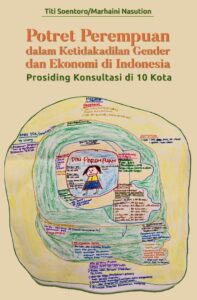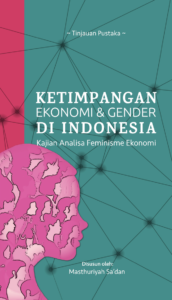This book is based on the documentation of the Multi-Stakeholder Dialogue activities initiated by Aksi! for gender, social, and ecological justice during 2023- 2024 period in eight cities in Indonesia, namely Ambon, Balige, Bengkulu, Denpasar, Jakarta, Kupang, Makassar, and Purwokerto.
This book presents an in-depth reflection on the issue of economic and gender inequality and the poverty feminization in Indonesia, as experienced and voiced by grassroots women from various aspect of life. The dialogue also involves policy makers, activists, community leaders, and the private sector in order to listen to and discuss various issues faced by women, from the seizure of natural resources, the gap in access to basic services, to gender bias in law and policy.
This proceeding consists of three main parts. The first part contains the expressions and experiences of grassroots women regarding gender and economic inequality in various aspect of life. The second part presents the views of decision makers and stakeholders on the issues. And the third part is summarizing the reflections from the ongoing dialogues, including the follow-up and recommendations resulted.
The common thread of this book is the collective struggle to bring about gender, social, and ecological justice through participatory and collaborative approaches. The dialogues highlight the importance of recognizing women roles in the society, resolving structural issues that perpetuate poverty, and the need for more gender- responsive policies








